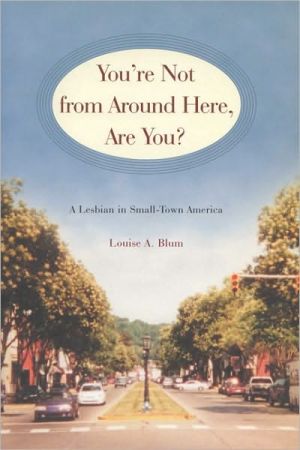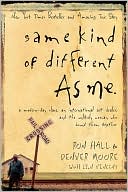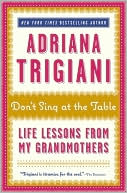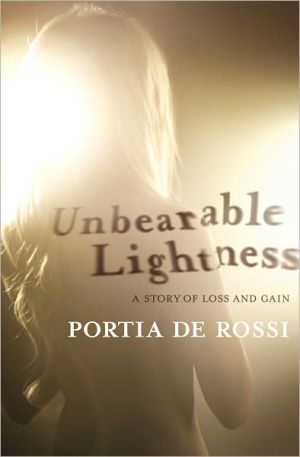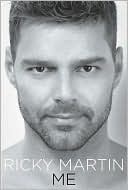You're Not from Around Here, Are You?: A Lesbian in Small-Town America
This is a funny, moving story about life in a small town, from the point of view of a pregnant lesbian. Louise A. Blum, author of the critically acclaimed novel Amnesty, now tells the story of her own life and her decision to be out, loud, and pregnant. Mixing humor with memorable prose, Blum recounts how a quiet, conservative town in an impoverished stretch of Appalachia reacts as she and a local woman, Connie, fall in love, move in together, and determine to live their life together openly...
Search in google:
"Put together 20 million frozen sperm, two funny women, and one impoverished stretch of Appalachia and what do you get? A wise and celebratory tale by Louise A. Blum, author of the critically acclaimed novel, Amnesty, who now uses her razor wit and deft precision to tell the story of her own life. With the help of a tiny sperm cell they call "Dad," she and her partner decide to have a child, unleashing a storm of controversy in their small town. From a glowing feature article in the family section of the local newspaper to the resulting prayer vigils on the village green, the town responds in radically different ways to their presence. A depiction of small-town life with all its comforts and its terrors, this memoir will speak to anyone who's ever felt like an outsider in America."--BOOK JACKET. Village Voice Blum's first novel, Amnesty, [was] a lesbian coming out tale, but what distinguishes it from a tide of sister books is Blum's poised prose, trained on detail and pleasingly free of breast beating.
\ \ \ \ \ Chapter One\ \ \ The rains began to fall at the end of June, hurling through the streets, flooding the rivers, and sending them running over the roads. Two inches fell in half an hour one day, sweeping a woman and her pickup truck over a bridge. The river that ran through Job's Corner jumped its dam and returned to its old course. Roads were closed permanently. We could no longer get to the mall, fifty miles to the north. Going to a movie was out of the question. We were trapped in Wellsboro, Pennsylvania, with no end to the rain in sight.\ "What about this one?" Connie asked, picking up an ovulation kit in the drugstore and turning it over to read the back. "Clear Plan Easy."\ "I like the sound of that," I said. Clear Plan Easy. It sounded like something I couldn't mess up.\ Connie frowned at the instructions. "All you have to do for this one is piss on a stick," she said.\ We looked at each other. "What could be simpler?" Connie asked.\ Indeed, what could be simpler? Ten days after the start of my last period, I could begin to test for the hormonal surge that would precede my ovulation. Once we saw a blue line on the test stick, we could order the sperm. As the day approached for me to begin testing, I could feel my courage leaving me, running from me like the water that coursed down the road in front of the house, heading for the fields. I read the directions over and over: keep the test stick pointed down and avoid splashing the windows with urine. I resisted the urge to practice. The night before the first day oftesting Idreamed that I was trying to piss on my stick and people kept knocking at the door, trying to get my attention. "Leave me alone!" I kept saying, moving from bathroom to bathroom in search of privacy. When I'd closed the last door behind me, I turned to find myself out on the roof of a building, with people I knew driving past on the street below. "Hi, Louise!" they called, over and over. I gave up, sank down on the toilet that sat out in the middle of everything, and pissed on my stick. There was no blue line.\ There was no line in actuality, either. Starting on Day 10 of my cycle, I got up every morning and pissed on my stick, worrying about it every step of the way. Had I left it in the stream of urine long enough? Had I splashed any urine in the little window?\ Every day I drove to Mansfield, the small university where I taught English as an assistant professor, braving the floodwaters that periodically submerged Route 6. I could hardly think about my teaching. My whole life revolved around the ovulation kit. I concentrated as if sheer mental energy could cause the blue line to appear, wavering and then growing solid, taking up its space in the little window that waited for it. Around me the water surged, thick and brown and furious, hurling down the hillsides, surging across the roads like cattle, leaving layers of sludge in its wake.\ I drove my stretch of highway with my eyes on the pavement in front of me, barely cognizant of the churches that dotted the landscape, almost as numerous as the cows: the Valley Missionary Alliance, the Full Gospel Church, the Assembly of God, River of God, Church of God, and so on, all carefully whitewashed and maintained, every church with its own hand-lettered sign out front, the slogan changing every day. This was God's Country, as the welcome sign attested, and Connie and I were two lone lesbians, trying to conceive a baby by our own version of immaculate conception. I just kept my eyes on the road, around me the flood waters rising as if Nature herself were testing for a surge, pissing down on all of us, waiting anxiously, to see what might appear.\ My luteinizing hormone surge, or as those of us in the know called it, an LH surge, showed up on Day 13 of my cycle. This meant that my ovulation would occur, just as the brochure said it would, on Day 14, exactly halfway through my cycle. I took the test stick down to the kitchen to show Connie. "Look!" I told her triumphantly. "I'm having my LH surge!" I felt vindicated somehow, more of a woman. Hormones were surging through my body, taking over my bloodstream, detectable even in my piss. I felt like an extremely complicated being.\ Connie took the test stick and studied it over her bowl of cereal. "Look at that," she said, examining the dark blue line in the test window that matched the dark blue line in the sample window that showed us that we had done the test correctly. She looked at me admiringly and handed it back. "Way to go," she said. I warmed to the approval in her voice. I was worthy of this mission. I would, in fact, conceive our child. I felt like a vessel, open and pure. It felt a little bit like being a nun.\ Connie brought me the phone. "It's time to call the sperm bank," she said. It felt urgent, like we didn't have a moment to lose. I dialed the number and ordered up two shots of Donor No. 9012, praying that his sperm was still available. We'd chosen him not only because his physical characteristics matched Connie's but because he'd listed interests in skiing and guitar. We'd liked his explicitness. Other donors had listed sports and music, but this was better, we agreed, because it implied that he might actually participate in these activities, as opposed to watching them on television while he opened up a can of beer.\ "We'll ship it right out," the woman at the sperm bank informed me. "Federal Express Priority will guarantee that you have it by ten-thirty tomorrow morning for just ten dollars more."\ I hesitated for just a moment. We didn't have to do this. I could hang up the phone right now, throw out the donor information, and our lives could just go on the way they were. I could feel my stomach plunge, as if I'd just stepped off the edge of a cliff. "OK," I said. "Send it express."\ "Fine," she said. There was a pause. "Will that be MasterCard or Visa?"\ As it turned out, the extra $10 was a waste of money. We lived in what Federal Express had officially classified as a Remote Area, meaning that it couldn't guarantee priority delivery before 4 P.M. I waited on the front porch with Connie, both of us watching the street. I wondered what I was doing, trying to have a baby in an area so remote that Federal Express couldn't even deliver on time. The world around us seemed full of moisture; the tops of the trees were shrouded in fog, a mist that seemed to roll up from the ground, as if we were in a jungle. I could picture elephants careening down the street, heading for the water. The petunias sprawled up the balusters of the porch, indolent in the wetness that flooded their roots. It was a jungle outside, teeming with wildness, and I was about to try to conceive a baby. I thought I must be crazy.\ When the Federal Express truck pulled into the driveway, the driver hauled a large gray tank out of the back of the truck and carted it up to the porch. Connie and I studied it dubiously. It was stamped with the words HUMAN TISSUE. The driver looked at us, from one to the other. "You want to sign for this?"\ Connie and I looked at each other. I signed my name tentatively, as if this might just be the last straw, consigning me to an instant state of motherhood from which I would never escape. The driver pocketed his pen and sauntered off down the steps, his clipboard under his arm, whistling something as he headed off to his life, leaving us on our front porch surveying our tank of sperm.\ "Well," Connie said. "I guess this is it."\ We both just stood there looking at the tank. Neither of us wanted to touch it.\ "I guess it is," I said. "I guess it's time."\ "It's time," Connie said. We looked at each other. "Let's go."\ We drove at high speed, the Talking Heads' "Little Creatures" playing over and over on the cassette player. "I want to do it," Connie said breathlessly as she squeezed the steering wheel in her hands. "I want to do the insemination." She glanced over at me. Her eyes glowed, as if with fever. I wondered for a moment if she might be mad. "Then we can say I got you pregnant," Connie said. Her voice rang with satisfaction. She looked back at the road, swerved, and hit a pothole. "OK?" she asked eagerly. We passed a placard rising majestically from a hill. "The fear of the Lord is the beginning of wisdom," it read. The words were arranged on the billboard in the shape of an open Bible.\ I shrugged. David Byrne's voice filled the car, ricocheting off my ears and through my brain. "Sure," I said. The rain ran down the side of the road and splashed against our tires. "Who else?" I asked. The tape switched over, the beat relentless and even. I shook my head to clear it.\ By contrast, the waiting room at the doctor's office was deathly silent. Not even Muzak dented the quiet. People lined the room, looking stern and uncomfortable in straight-backed chairs that were just a little too small, their children playing on the rug. It was a practice that concentrated on the poor; the majority of the obstetrics patients were high risk, fourteen-year-olds who'd gotten pregnant by their boyfriends, or sometimes, by a member of their family. "Incest capital of the world," my colleagues used to joke. I'd always found the comment irritating, but now, looking around the room, I found it even more annoying, because I suspected that it might be true. The rest were elderly people on Medicare and Medicaid. The median income in the county was $12,000. Its population was forty-one thousand, more than forty thousand of whom were white. Most of my students were the first in their families to go to college, some already the first to finish high school. It was what I liked about teaching here, the idea that I could really accomplish something, really give my students a vision for change. It was a lot like the work I used to do in my twenties, when I organized people in low-income neighborhoods to seek change.\ Everybody looked at us when we walked in lugging our tank between us, the HUMAN TISSUE label clearly visible on the side. We checked in at the window, then found a couple of empty seats against the wall. People eyed us uneasily. I wanted to make some comment about the head we were taking into the office, but the remark dried on my tongue. There was no room for levity here. This was a serious business. Children played around us on the floor, their faces smudged with dirt and grime. One looked up at me, her fingers in her mouth, her eyes large and solemn. I felt a chill go through me. This was what we were here for? What had we been thinking of? The tank sat between us on the floor, ominous as a time bomb. I could almost hear it tick.\ "Connie," I whispered. Connie looked at me. Her eyes were huge. She played incessantly with the keys in her hands. "I'm not even sure I like kids," I whispered.\ Connie glanced around the room, leaned in closer. "I know," she said. "I held a little baby today, and I didn't feel anything."\ "Louise Blum?" the nurse said, opening the door. Connie and I rose as one and hauled our tank across the room between us. All eyes followed us to the door. Not only did we have our own HUMAN TISSUE with us but we didn't have to wait. I could sense a restive stir behind us.\ "Come this way," the nurse said. We followed her mutely. I didn't know her. I hadn't known the receptionist. I didn't know anybody here, except for Dr. Gordon. I felt as if I might throw up. The nurse led us to a room where we deposited our tank of sperm. She looked at us, nervousness evident in her glance. She didn't know why we were here. She didn't know what preparations to make. The two of us just stood there, the tank between us on the floor. "The doctor will be right with you," she said and backed out of the room, closing the door behind her.\ I took a deep breath and turned to Connie. "Well," I said. "This is it."\ Connie nodded, taking her own deep breath. "Yes," she said, "it is."\ I sat down on the table, not knowing where else to sit, and glanced at my watch. I took another deep breath and tried to connect with the egg inside me. Was it in there? Was everything where it was supposed to be? I glanced at Connie out of the corner of my eye. She was looking very serious. I reached out and took her hand in mine. It was cold and slightly clammy. She looked at me and tried to smile. There wasn't anything else to say. In the end we could only sit there and wait for the doctor to appear.\ We'd been through this once before, nearly two years earlier. On the recommendation of our family doctor at the time, we'd scheduled an appointment to meet with an insemination specialist in another city. I'd dressed for the appointment carefully, my pink triangle pin prominently displayed on my lapel. "You look great," Connie had said, watching me dress.\ I had glanced over at her as I put on my boots. "Oh, yeah? Would you inseminate me?"\ Connie had smiled at me. "In a heartbeat."\ We had held hands across the seat of the truck as we drove. The city was more than an hour away, down a long and winding road that snaked through a tricky mountain pass that took several lives each year. Trailers and shacks, some sided with tar paper, outlined the road with puffs of wood smoke from their makeshift chimneys. Junked cars filled their front yards, the outhouses propped up against the edges of their fields. We passed a farmhouse with a sign swinging from the mailbox, a cow neatly stenciled beneath the words Jesus Saves.\ We waited in the waiting room for hours that day. Pregnant women sat around us, reading parenting magazines and rocking in rocking chairs placed tastefully around the room. I picked up a magazine from the rack beside me and thumbed through its pages, looking at the pictures of babies and toddlers and happy glowing mothers. It was like an alien language. A chill shot through me. I put the magazine down. What were we doing here? We had agreed I would go first. I had the better insurance policy; I was the one with the aging ovaries drying up inside me, threatening to blow away on a puff of wind.\ The hours crawled by. The longer we waited, the more nervous we both became. "I don't know if I can stand this," Connie confided. At that moment we heard the nurse call my name. We rose and marched across the room, aiming for that open door, the door that would take us into motherhood.\ The nurse weighed me, wrote the information down in a chart, and ushered us into the doctor's office. We both sat down, our two straight chairs uncomfortably far apart. The moments ticked by. When the door opened again, the doctor walked in, short and stocky, his white jacket barely buttoning across his belly. "I'm Doctor Romero," he said. I introduced myself, then introduced Connie as my partner. I didn't know what other word to use. Lover hardly seemed appropriate, given the situation.\ He nodded at me, ignored Connie. He flipped open my chart and asked me questions about my menstrual cycles, my personal history, filling in the relevant information. Then he glanced up at me. His glasses slid down his nose as if they might fall right off, given another moment. "Are you married?" he asked me.\ I hesitated in confusion. Hadn't our doctor taken care of this? "Well, no," I said. "I'm not."\ The doctor shut my chart and sat back in his chair. "Oh," he said. The word seemed to freeze on his tongue, like ice. "We don't inseminate single women."\ I stared at him. "I'm not single," I said. I indicated Connie again, vaguely, with a wave of my left arm. "We're together."\ The doctor cleared his throat and pushed his glasses back up his nose. "Let me clarify that," he said. His tone was crisp. "We don't inseminate women without husbands. It has nothing to do with the fact that you're lesbians."\ We sat there for a moment. Neither of us looked at the other. "But our doctor talked to you," I said.\ Romero interrupted me. "He talked to my partner," he said. "We've had a staff meeting since then and developed a policy."\ "A policy," I echoed faintly. Inside I felt absolutely numb. My heart no longer even seemed to beat, as if it had dried up in there, whispered away in the chill of this sterile office with its white-jacketed medical personnel and its artificial air. I couldn't look at him. I got up and, without even intending to, walked out of the office and back toward the door.\ Connie got up to follow me out. "Thank you," she mumbled as we left.\ I never stopped at the desk to settle the bill. I never stopped moving until we got back to the parking lot, and by the time we were there I could feel the numbness fading away, replaced by a rage so deep I thought it might destroy me. I looked around for his car. I imagined slashing his tires, running the edge of my key along his doors, dumping sugar in his gas tank, stuffing a banana up his exhaust pipe, all guerrilla tactics I'd learned as a young community organizer, spending what free time I had reading Saul Alinsky and Franz Fanon and knocking on doors in poor neighborhoods. That fucking little man, I thought, with his fucking sacred sperm, dispensing it only to those that he deems worthy. That fucking little shit.\ We drove home in silence, me in the passenger seat, Connie at the wheel of the truck. As we began to climb the hills that led to home, I became fixated with her shifting of the gears. "Don't put it into fifth so soon," I said.\ Connie stared straight ahead. "Don't tell me how to drive."\ "It's my truck," I said. "I don't want you to ruin the transmission."\ Connie pulled off the road, and we sat there for a moment. I felt my eyes fill with tears. Connie looked at me. "Why are we fighting with each other?" she asked. There was wonder in her voice. "It's that doctor that we're mad at."\ After that experience a friend referred us to Dr. Paul Gordon, a man in his forties, known in town for being progressive. He treated the clients at the human services agency where Connie worked. Gordon was also the chief of obstetrics at Soldiers and Sailors, the local hospital right down the street from us. I knew him from the town's fitness center, a place I'd spent a lot of hours and where he worked out irregularly, though we'd never been introduced. I knew him by his body, which was short and compact, covered with sweat when he ran on the treadmill. "Just ten more minutes," he'd say, when anyone asked him how much longer he'd be. It was always ten more minutes. He used to spend an hour on that thing. I thought his heart rate must be something else. "We'll do it," he'd said without a moment's hesitation when I'd asked him about inseminating me. "We've never done it before," he added, "but we'd like to get into it." He might have been talking about a real estate deal.\ "What about your partners?" I asked him.\ He shook his head. "They'll be fine." He leaned back against the window and cupped his hands around its sill. He exuded male energy. I remembered him on the treadmill, his T-shirt clinging to his chest. For a moment I pictured his sperm jogging through his body, all suited up for the run, not frozen in some test tube somewhere, preserved for eternity.\ "My best friend is gay," he said. "He was my best man, and I was happy when he told me he was gay—it meant he wouldn't make a pass at my wife!" I wondered briefly whether he would have any compunctions about a lesbian under the same circumstances. "As for the girls at the desk," he said, "they never have to know. It's a private matter."\ "It's not a private matter," I told him. "I want everyone in the office to know." Especially, I thought, the "girls" at the desk. I wanted them to have to deal with it on their own, to have to acknowledge my relationship with Connie the same way they would acknowledge that of a husband and wife. I was tired of things being private. My relationship with Connie wasn't private anymore, and I was going to make damned sure it never was again.\ Dr. Gordon nodded. "OK," he said. "Whatever you want."\ When he stepped into the room now, on the morning of our first insemination attempt, I felt my stomach clench. He shook our hands as if it might be some sort of business transaction that we were just about to conduct. "OK," he said, looking down at our tank. "Have you opened it up yet?"\ Opened it? I could hardly stand to carry it. No way was I opening it up alone and unsupervised. "No," Connie said brightly. "Can I?"\ He nodded. "Certainly," he said.\ Connie bent down and unscrewed the lid and pulled it off. Steam rolled out into the room. We all stared at it in awe. "It's like a horror movie, isn't it?" Connie joked. I chuckled wanly. Dr. Gordon only leaned back and crossed one leg over the other, cupping his hands around his knee, surveyed her speculatively, as if waiting to see what she might do next. I gripped the sides of the table with both hands. Nausea pummeled my stomach. Please, I thought, just let this be over soon.\ "I'll just step out of the room for a moment and let you get undressed," Dr. Gordon said, pulling a drape from a drawer in the table and handing it to me.\ Connie stepped over to me as soon as the door closed behind him. "We can do this," she said.\ I looked at her. I felt as if I were drowning, as if she were the only person who could pull me to shore. "Don't forget to tell him you want to do the insemination," I said, as if I might not be able to talk again once Dr. Gordon came back in. For a moment I almost wished for general anesthesia, so that I could just wake up and have this all be over.\ Connie nodded. I unzipped my jeans, slid them over my hips, slipped off my underwear. My heart beat unevenly. I pictured it in there, haggard and worn inside my chest, prematurely aged from too much adrenalin. "I'm scared," I said. The paper on the table stuck to my ass; the drape tore as I spread it over me, trying vainly for some sense of privacy.\ "I know," Connie said. "I am too."\ Dr. Gordon opened the door and stepped back in. He gave the impression of flowing in, snakelike, insinuating his body around the door. He listened seriously as Connie explained that she wanted to do the insemination. He nodded solemnly. "There's no problem with that," he said. "I'll just open Louise up and show you how to do it."\ Open me up? Hello, I wanted to say. I'm still in the room. He pulled some cotton swabs out of a drawer and handed Connie a speculum to warm up at the sink. The two of them busied themselves with preparations while I lay back and tried to keep breathing. My whole body felt cold. I'd imagined this process as being more personal somehow. This felt about as personal as an autopsy. Dr. Gordon removed the vial of semen from the tank and slipped it into my hand to warm it to room temperature. Finally, something I could do. I lay back and held it in my hand, studying it between my fingers. No. 9012. It looked entirely innocuous, like a tiny vial of egg substitute.\ Dr. Gordon slipped my feet into the stirrups and arranged the drape across my knees. "You slide the speculum in just so," he said to Connie. I felt the familiar suck and stretch, reminiscent of a pap smear. "Now you try," he said, collapsing the speculum and pulling it back out. Connie glanced at me, then slid the speculum back in. "Be careful," Dr. Gordon said. "You don't want to pinch the walls of the vagina."\ No, I guess not. I could feel my whole body bracing itself, waiting for the pinch. The speculum slid into place. I could feel the air of the room slipping into my opened vagina. "See," he said warmly, "how the cervix just pops into view?"\ I pictured my cervix popping into view, waving a cheery hello. The image was chilling. "You swab the mucous from the cervix," he told Connie, "and then aspirate the semen like so." There was a pause. I couldn't feel anything anymore. I couldn't see them on the other side of the drape. All I could see and feel was a bright hot light directed on my vagina. "That's it," Dr. Gordon said with enthusiasm. I could see the tops of their heads, the blond of the doctor's mixed with the brown of Connie's. "There it goes," he said. I tried to feel it, this rush of sperm, sent off like salmon on their run, swimming upstream despite the odds. "Gee," he said to Connie. "You're really good at this."\ "My father's a doctor," Connie said modestly, as if this might be why, as if her father might have had her help him out around the office after school. I closed my eyes and tried to focus on my egg, tried to get a picture of the sperm valiantly making their way through my body. I could picture their little arms going up and down, their heads rhythmically tilting to breathe the air down deep in their lungs, their little faces taut with the pressure, while somewhere far ahead of them my egg danced on the waters like a shimmering sunrise, awaiting their arrival. I tried to wish them well, but it didn't feel like a friendly swim; it felt like an invasion, like my body had just been assaulted by a hostile army. It felt inexorable, like being injected with HIV. I felt sick suddenly. All that time I'd spent trying not to get this stuff beyond my cervix—diaphragm, birth control pills, rhythm method, withdrawal—and there I was, open-legged and ready, willingly admitting it.\ "OK," Dr. Gordon said, sounding almost cheerful. He put my knees together gently, like closing the pages of a well-worn book. "It says here that you should lie here for twenty minutes or so, so I'll just leave you alone in here."\ He closed the door behind him and immediately Connie was there, her face close to mine, her hands around mine. "It's OK," she said. "You're going to be just fine." Her face was soft, tiny lines crinkling the skin around her eyes when she smiled at me. "It's all done now," she said, and I could feel the muscles in the back of my neck loosening, could feel my breathing slow. "It's all over," she whispered, leaning closer to me, and I closed my eyes and felt her breath against my face, felt her lips brush my forehead, the touch of her tongue against my skin. "There's nothing else you have to do," she said, and together we waited out the rest of the time, until the doctor told us we could go.\ "Here's the vial," Dr. Gordon said as we gathered our things together to leave. I felt light-headed, suddenly, as I walked out into the hallway. I moved carefully, carrying my body as if transporting the Ark of the Covenant. God knew what might be in there. "You'll want to hang onto this," he said.\ "Why?" I whispered to Connie as we paid our bill at the window. What on earth would we want an empty sperm vial for? A little memento of the experience? Weren't we hoping for another kind of keepsake? Connie shrugged and slipped the vial into the pocket of her jeans. "Come on," she said, pulling out the keys. "Let's go home."\ "Let me see the vial," I said when we got home.\ "No," she said possessively, taking it out and looking at it fondly. Then she put it on the mantel. "Dad," she said, nodding over at me.
Acknowledgmentsix Will That Be MasterCard or Visa?1 Just Don't Do Anything Stupid15 Maybe It's Morning Sickness25 I'm Gay!!!43 Getting a Double Dose of It51 She Should Keep It in the Bedroom63 Welcome to Satan's Playground77 The Guys at the Sporting Goods Store Think You're the Greatest95 If There's a Blue Line in the Large Window 117 Well, Just Be Careful 129 The Precocious Child of an Eccentric Writer139 Why Don't I Run Down to the Liquor Store?149 Zoe = Life161 There Is Something Out There Known as Mother Nature169 This Is Your Conscience Speaking179 Hell—We're All Sinners!191 Your Silence Will Not Protect You201 It's Just So Hard to Get to Brooklyn215 Making Room for My Baby225 Give Me the Stamps235 Just Make Sure Your Water Isn't Leaking249 We Thought Maybe You'd Changed Your Mind257
\ Village VoiceBlum's first novel, Amnesty, [was] a lesbian coming out tale, but what distinguishes it from a tide of sister books is Blum's poised prose, trained on detail and pleasingly free of breast beating.\ \ \ \ \ Publishers Weekly - Publisher's Weekly\ A pregnant lesbian living in the middle of God's country: it sounds like the premise of a sitcom, but this personal narrative of love and childbirth in Wellsboro, Penn., is by turns poignant and wonderfully witty. Blum (Amnesty), a novelist and college professor, recounts the difficulties that being gay presents when one simply wants to get a mortgage, fix up a house and attend Lamaze classes in a small town. But to Blum's credit, this is no rose-colored, resolutely middle-class, "we're just like everyone else" kind of gay autobiography. She is refreshingly honest not only regarding her ambivalence about having children, but also regarding the sexual tensions the pregnancy causes in her relationship with her partner. Her descriptions of finding a sperm donor are hilarious ("He's attractive, I'd think, shaking someone's hand. I wonder what his sperm count is?"). And the book is filled with touching surprises such as that Blum doesn't admit to herself that she's gay until a year after moving in with her lover. With astonishing resilience, she describes her family's close-mindedness, as well as the prejudice she encounters from the townspeople she'd come to trust. Unfortunately, there's no escaping the miniature terrors of small-town life; as Blum points out, describing a trip across America, "Wellsboro is everywhere." (Apr.) Copyright 2001 Cahners Business Information.\ \ \ Library JournalFor most Americans, relocating to a small town, getting married, and starting a family is a clich . For gays, lesbians, bisexuals, and transgendered people fearing isolation, ostracism, and worse such a step requires courage. Blum and her partner meet with obstacles not experienced by most Americans, as when they decide Blum will undergo alternative insemination and they are refused service by the first doctor they go to. After she gets pregnant, Blum is subjected to a hate sheet put out by students speculating that her child will be deformed. Even the couple's friends and supporters can't fathom the depth of their vulnerability. Blum's memoir ends at the birth of the couple's daughter, just when it becomes even more interesting: what is it like for a child to grow up with gay parents in small-town America? Blum's at times cautionary tale will be a reality check for LGBT readers and an eye-opener for straight ones. Recommended for all collections. Ina Rimpau, Newark P.L., NJ Copyright 2001 Cahners Business Information.\ \ \ \ \ BooknewsBlum and her (female) partner's decision to have a baby provided the citizens of their small town in Pennsylvania with much to talk about, protest against, and hold pray meetings over. Blum (English, Mansfield U., Pennsylvania) retells the story with humor, though readers will admire her daily courage to remain in a town that takes such umbrage at her pregnancy and childrearing. Annotation c. Book News, Inc., Portland, OR (booknews.com)\ \
